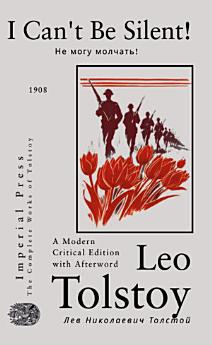I Can't Be silent!
Über dieses E-Book
In this polemic, Tolstoy employs stark imagery and ethical reasoning to challenge the Russian Orthodox Church's complicity with state executions. He questions how a society claiming Christian values could perpetuate such barbarism, framing the death penalty as antithetical to both human dignity and spiritual truth. The essay's historical context—written during a period of political turmoil in late Imperial Russia—amplifies its significance as both social critique and moral imperative. Through this work, Tolstoy not only participates in contemporary debates about justice and governance but also reinforces his legacy as a radical moralist dedicated to nonviolent resistance.
This critical reader's edition presents a modern translation of the original manuscript, crafted for the modern reader with clean, contemporary language and simplified sentence structures that clarify his complex Russian phrasing and specific antiquated references. Supplementary material enriches the text with autobiographical, historical, and linguistic context, including an afterword by the translator on Tolstoy’s personal history, impact, and intellectual legacy, an index of the philosophical concepts he employs—emphasizing Existentialism and influence by Schopenhauer—a comprehensive chronological list of his published writings, and a detailed timeline of his life, highlighting the personal relationships that shaped his philosophy.







